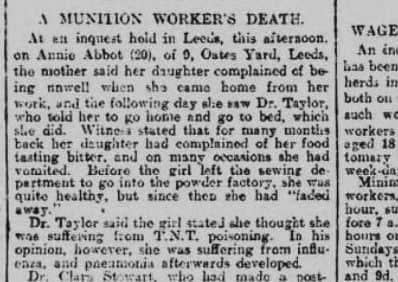Armistice 100: '˜Bed by 10' saved Leeds 20 per cent on gas in 1918
and live on Freeview channel 276
Many people were already well into the habit of turning in at about 10 o’clock, according to the article, which added: “The music halls find that their bigger audiences assemble at the first performances, and the evening tramcar service is at its busiest between 9.30pm and 10pm. After ten o’clock, the city streets are, generally speaking, deserted, and in the residential parts, the houses which regularly show a light after ten are comparatively few.”
It adds: “The householders’ ten o’clock bed time rule is a substantial contributory factor in the very remarkable decrease in the consumption of gas.”
Advertisement
Hide AdAdvertisement
Hide AdIt said that in Leeds, the gas consumption had fallen by as much as 20 per cent.


In other news, there was a report of an inquest into the death of a Leeds munitions worker, who apparently died from TNT poisoning. Annie Abbot, 20, of 9 Oates Yard, Leeds, had been complaining of feeling unwell for several days and also of her food tasting bitter. She was visited by a doctor, who told her to go home to bed, which she did. She had previously worked in the sewing room but became unwell when moved into the powder room, according to the article.
At the inquest, Dr Taylor said he believed she was suffering from influenza and had later developed pneumonia and this was later confirmed by a postmortem examination.
The Coroner recorded a verdict of death by natural causes.